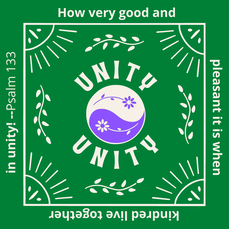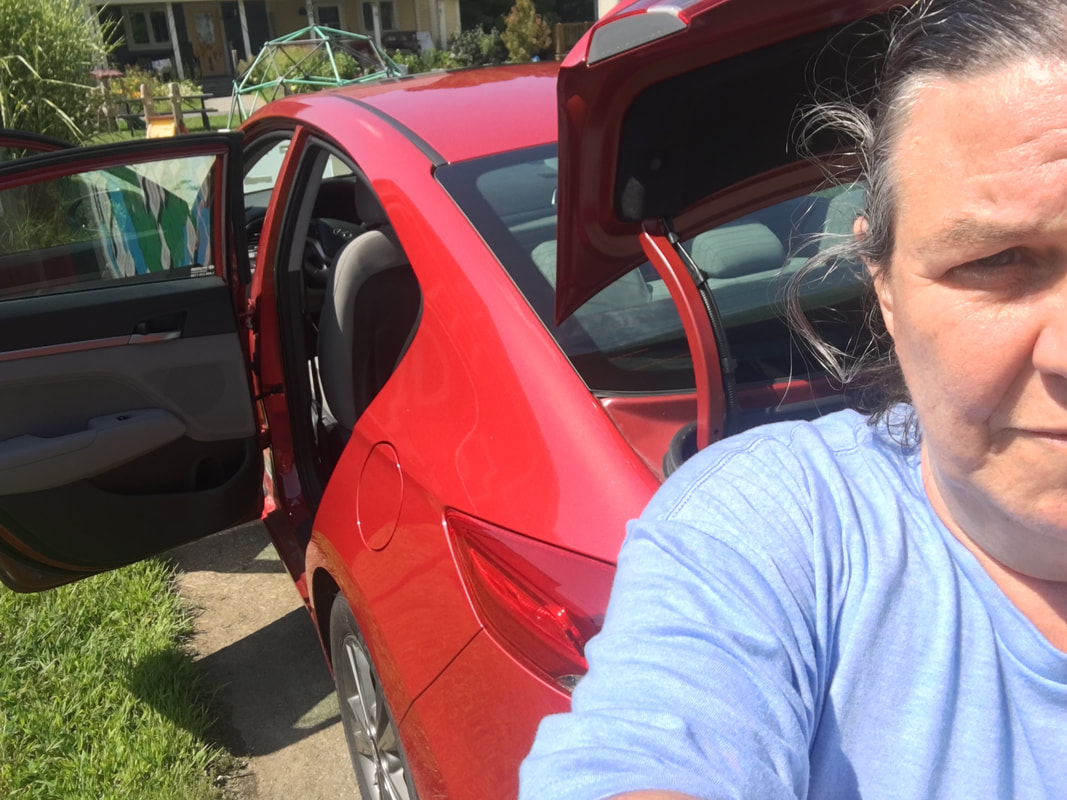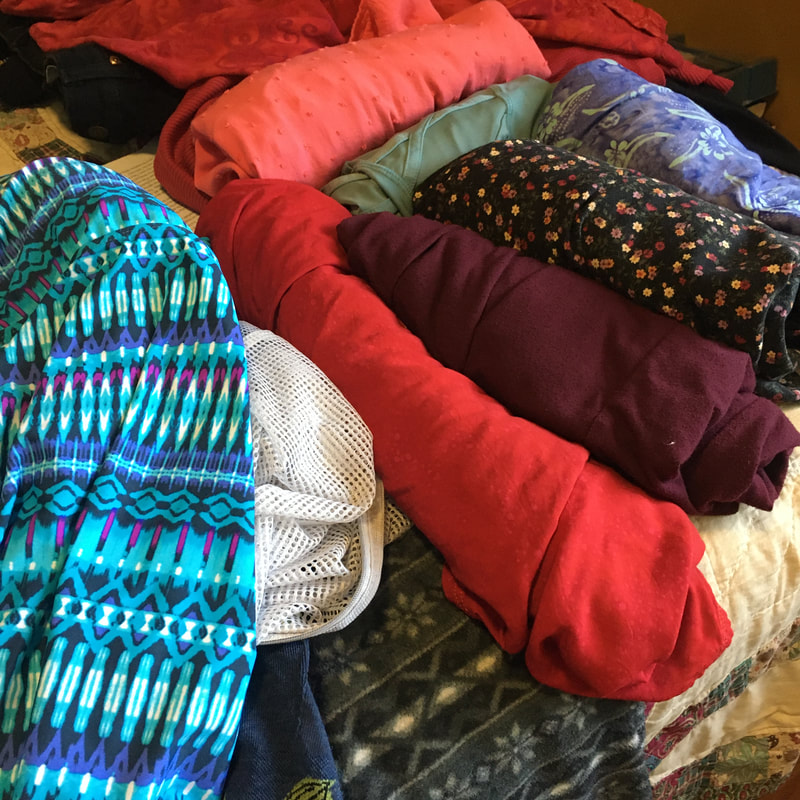 Another leadership meeting. Our pizza place is closed for the summer, so we've been meeting picnic style on the common. It's not optimum, some people are uncomfortable on the ground, if we meet on the park chairs we are in a row not a circle, so discussion is hard. So we set up a couple blankets out and walked around and told those hanging out on the benches that our discussion would taking place on the blankets and they are welcome to join us. One older gentleman came almost 20 minutes early to talk, so we visited with him until 4pm. Another regular from worship arrived right on time and we began with prayer and Bible Study. We are looking at Psalm 133: "how wonderful it is when people live together in unity". Pizza (from another store) arrived at 4:30 and we talked about how important eating is to creating community. We also discussed how to drink soda without cups! Six or so people from the surrounding seats came over to join us. Debbie, a young African American woman who had been at worship for the first time this morning, accepted her pizza but would not sit down. "I don't want to be rude" she said "but how is this church helping the homeless any more than anyone else?" Yes. How are we helping? I offered something about how we know we aren't providing housing or food, or the things people need the most. She offered other examples of things we don't do. I agreed. I went on to share that we are distinctive--that we are outside, so people can drink or walk around, or take a break. That we remind people that God loves them before they get sober. That we welcome all people, including those that are Lesbian, Gay, Bisexual or Transgender. I was at a loss of what else to say. Diane spoke up "I'm an alcoholic, and today was the first time I felt like I could stay in church, because I was drunk when I came." Dave said "I've been sober a long time, but I need to move around. I always come late." James said "And you guys really listen to us." Debbie pulled up some blanket and sat down. We continued with a discussion about what makes "unity" and what makes "community." Then we moved on to the business of the meeting. We have $600 in our budget from the offering. How shall we spend that money? Bus tokens, or bus passes. What should we do for a donation? Abbey's house, Jeremiah's Inn, Rachel's Kitchen. No, someone hollers, I want us to do bus passes. "Bus passes are for us. What do we want to do for other people?" This description of our meeting sounds so organized. Can you tell that all this is happening at once? At the same time a guy rode up on a bike, hollered for one our participants, and was told to get out of here. Two people went off to smoke, one volunteered followed, and for a few minutes we had two discussion circles 12 feet apart. Someone complained that this can't be bible study if we don't have bibles, and another handed him the printout of Psalm 133 and said "this is about community". Someone else complained that Abbey's house and Jeremiah's Inn get government money, so we shouldn't help them. Debbie called us all to attention. "I have an idea. How about we use the $60 that we give away to buy food for Abbey's House. Then we can meet a church in the area and make dinner for the women there. You know they have to get together and cook dinner for themselves every night." "Why $60?" "It's 10% of $600." "I want bus passes." "We can do that, too." "Shall we do dinner for Abbey's House?" "Yeah!" "All in favor say 'aye'." We passed the proposal just as lightening ran across the sky. "Someone pray us out." I said, "quickly!" Brian prayed for the homeless everywhere, and for the women at Abbey's house. We handed out the last of the pizza and raced to our various places for shelter just as the drops poured from the sky.
0 Comments
 I own a lot of stuff. As I gather that stuff to start my #RoadTriptotheGoose it occurs to me that I may not need this much stuff. I read science fiction. Thus, as I pack my car I always imagine "what if this is all that I'll have if the world-as-we-know-it ends on this trip"? What will I be sorry that I left behind? Certainly the 12 boxes of photos in my attic, which I have not looked at in more than 20 years. My sewing machine. Two bookshelves full of fabric. Hiking poles? Batteries? All these things are important, right? What is the modern day equivalent to the man who stores things up and the dies suddenly (Luke 12:16-21)? I do not have an excess of grain, does that mean I'm off the hook? I once asked a woman in a small town in Guatemala if I could take her picture. She said yes, but she had to run home first to get her other dress. That is, she had two, the one she was wearing, and the other one, that was for pictures and church and weddings and such. I saw a woman in India wearing half her sari while she washed the other half. I know women in Worcester who go braless because bras for large sizes are in excess of $50 each. In the meantime, I'm here debating whether I can go camping for four days with four outfits. What if it rains and one gets muddy? Packing is the art of figuring out what things will be important for the next number of days. What will be the weather, and what will make me uncomfortable, and what do I want to eat? What will I wish I had with me for the end times? It turns out that it is also time to reflect on my accumulation of things. What would it look like to live with less? And if I gave up my stuff, would I replace it with God? So it is with those who store up treasures for themselves but are not rich toward God. -Luke 12:21 I don't have any answers. Lots of stuff and lots of questions.  I was eating lunch at an outdoor table with a few friends last week when several homeless guys walked by. One stopped a the table next to us and asked if they had any change. One of my companions spoke up. "They shouldn't do that." She said. "Shouldn't do what?" "They shouldn't ask people who are eating for change." This is one of the difficulties of the street church pastor job. "They" aren't "they" anymore. I probably agree, its probably rude to ask people for money while they eat. But it's different to make such a statement when the person asking is Jo, or Jose, or Juan, not "that guy". And the more people I've met, the less I can see that guy as other. I don't know him, but I know others like him. I have people I could call friend who ask people--indeed who ask me, for change. Many visitors to Worcester Fellowship ask about spare change. "Should we give money to people we see on the streets?" One answer is easy. "This ministry is not about giving people money. Worcester Fellowship doesn't give people money" "But should we, you know, the rest of the time? Should we give people money?" I've spent a fair amount of time searching for proof that the Bible doesn't ask us to give poor people money. Unfortunately, it does. In Proverbs it says "if someone asks you for money, give it to them." Damn. "But won't they use it for alcohol, or drugs?" "Yup, they will. Alcohol, drugs, cigarettes. And also for coffee at Dunkin' Donuts so they can use the bathroom. And phone cards so they can be called for jobs. And a chocolate bar. Lunch. A lottery ticket." The fact is, except for cigarettes and drugs, I've used MY money for all those things, too. Here is my advice. Decide for yourself about the money. But look the person in the eye when you say "yes" or "no". And ask "how are you today?" Smile. And think of them as "Jo" or "Jose" or "Juan" and not as "them". Maybe say a prayer. People shouldn't have to ask people who are eating lunch for spare change. That I know for sure! #5loaves2fish12volunteers #RoadTriptotheGoose #WildGoose2021 |
My ThoughtsFor my organized thoughts, see my book Five Loaves, Two Fish, Twelve Volunteers: Developing Relational Food Ministries. In this spot are thoughts that appear for a moment--about food programs, mission, church, building community, writing, and whatever else pops into my head. History
January 2024
Categories
All
|


 RSS Feed
RSS Feed